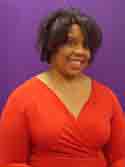We offer congratulations to Rhea Miles on her recent one million dollar grant award, a Science Education Against Drug Abuse Partnership Program funded by National Institute of Health / National Institute on Drug Abuse (NIH/NIDA) from 2014-2018. The Science Education Against Drug Abuse Partnership (SEADAP) program is a 6-12th grade curriculum using planarians. Planarians are a type of flat worm that display preclinical effects of addictive substances such as nicotine and alcohol. The specific aims of the program are to use planarians to implement an outstanding “hands on” curriculum which teaches students about the science of drug addiction and the adverse effects of widely abused substances; foster partnerships between scientists, educators and students via media outlets to educate the general public about drug addiction and abuse; conduct investigations from a lab manual with students and teachers which specifically address National Science Education Standards; expose students to addiction research; and increase student interest in careers in biomedical science. Click to see TV News coverage of this study.
To further spotlight Dr. Miles, we asked her to reply to some questions and present her answers in an interview format below.
What universities have you attended, what did you study, and what degrees did you earn?
BS in Chemistry from James Madison University
MAT Chemistry from University of Virginia
PhD Science Education from University of Virginia
What informal learning experiences and/or work experiences have contributed to your education?
As a child growing up in Virginia, I participated in several mathematics, science and engineering enrichment programs. Later in school, as a graduate student and teacher I had the privilege of serving as the sponsor of the science club at Charlottesville High School, where I was an instructor. At the University of Virginia I coordinated several STEM-related programs for teachers, high school students, and undergraduate students. I also led science sessions for Delta Academy participants of the Charlottesville Alumnae Chapter of Delta Sigma Theta Sorority Incorporated.
What drew you to the field of Science Education? What areas of Science Ed are of particular interest?
I love science, particularly general chemistry. I found the subject matter really interesting in high school and thus decided to earn a BS in Chemistry in college at James Madison University. I also like to talk— and what better way to direct my willingness to orally communicate with others than by pursuing a profession which requires it! As a teacher and research professor I am allowed to present information about what I like and I disseminate my research interests through written publications and conference presentations. My research focuses primarily on African-American achievement in science. I am particularly interested in equity in science education and creating strategies to address the“ achievement gap” of African-American and Latino students in K-12 and higher education.
What are some of the projects you have participated in that you are most proud of?
I have served as one of the coordinators of the TechMath professional development program from 2006-2010 funded by the National Science Foundation (NSF). This program involved forming a partnership with businesses, colleges, universities and school systems in rural northeastern North Carolina. The products of the partnerships were instructional modules which incorporated and modeled solutions to local, real-world business problems. The TechMath objectives focused on impacting a high percentage of under-served, under-represented 6-12th grade students from 12 school districts in rural northeastern North Carolina and improving instruction and student attitudes about Science Technology Engineering and Mathematics (STEM) careers. Teachers and students designed and implemented instructional modules with the help of business partner representatives and members of the TechMath staff. I have also been the Principal Investigator and Director of the East Carolina Reach Up program from 2002-2010. The goal of the Reach Up program was to motivate minority students to consider careers in a STEM-related discipline. I have published articles on the success of the impact of science enrichment programs on minority students in journals such as the Science Teacher, Teachers Educator Journal, Electronic Journal of Science Education, and Science Scope. I have also presented my research findings related to the effect of science enrichment programs at over 15 state, national, and international conferences. I look forward to continuing to inspiring others to want to make a positive contribution to the science profession.
